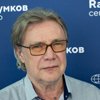This is not a forecast, but rather an assumption about what to expect from Russia on 9 May and on days before this “festival of victorious hysteria”.
If he lives to this date, Putin will address his nation with a grand speech like: “Fellow Russians! I declare the special operation in Ukraine completed. It resulted in the liberation of the Russians in the Donbas, which became part of the Rostov oblast, and in the Kherson region, which was reunited with the Crimea within the revived, historically Russian, Tavria...”
For Russia, this will mean the transition from the offensive to the defensive phase of the war, which will be accompanied by attempts to put Ukraine on the negotiating table to fix the situation “as of now”. For Ukraine, this will mean a long-frozen conflict with unpredictable consequences. Russia’s hopes for success may be fuelled by statements by the US Secretary of State Anthony Blinken — about the United States’ readiness to accept any decision of the Ukrainian people, and by Germany’s Olaf Scholz — about the possibility of lifting sanctions on Russia after signing a peace treaty with Ukraine.
For Ukraine, such an agreement would mean capitulation.




